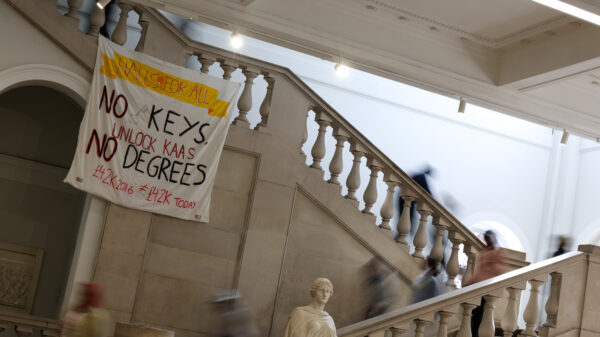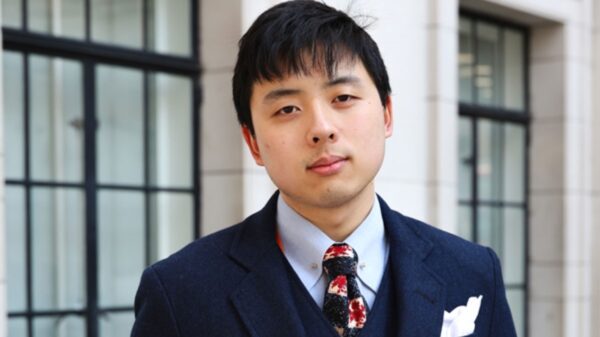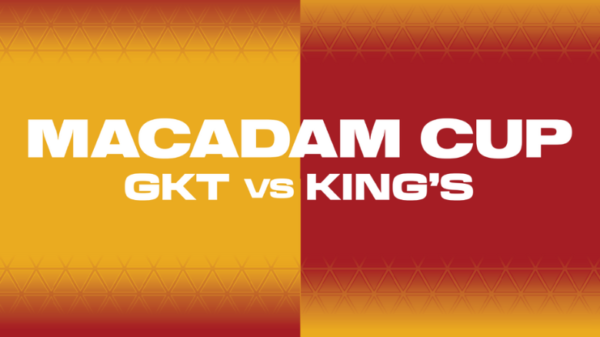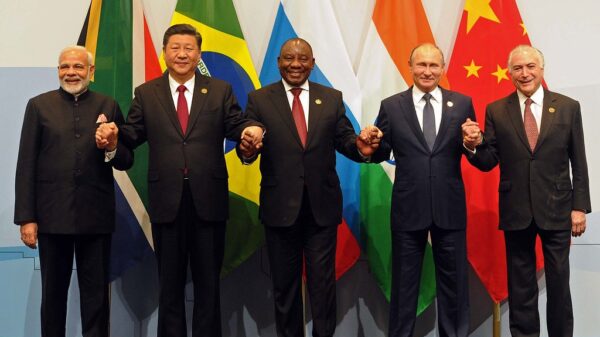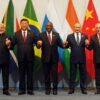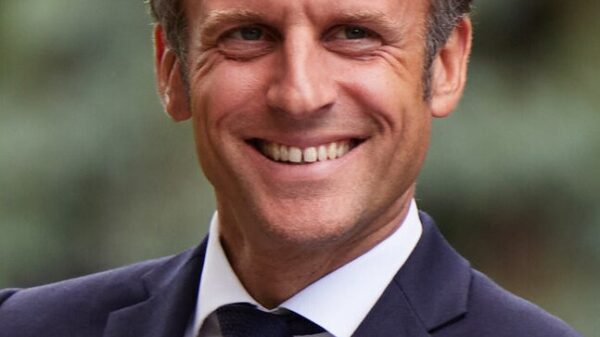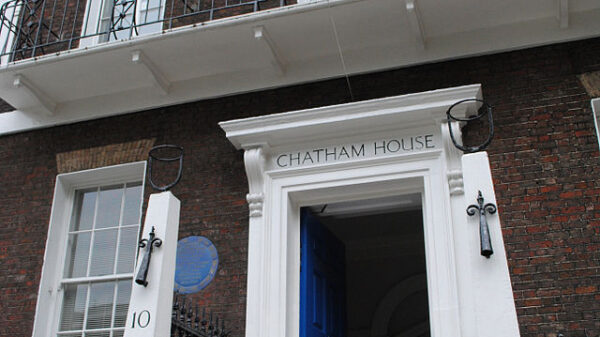Staff Writer Thomas Ullmo examines Macron’s recent comments on Taiwan and takes a look at his broader plans for Europe’s foreign policy.
French President Emmanuel Macron has utilised his time away from domestic turmoil to clarify his long-proclaimed vision of European integration during a week full of diplomatic visits. While in China, he also commented on the situation in Taiwan, sparking a great media frenzy worldwide.
When a head of state is under as much fire domestically as Macron, one would expect any time away to be a blessing, a rare and timely opportunity to keep a low-profile, not cause more outcry or further divisions. Yet with his trip to China last week, Macron disproved these assumptions by remaining faithful to his usual style of provoking controversy.
Regardless of one’s judgment of the French president’s character, politics or his unfailing ability to drop bombshells at every breath, his past state visits have undeniably allowed him to pose, despite national unpopularity, as a dynamic, proactive, and ambitious actor on the global stage. However, he possibly overestimated his power and influence this time.
The triggering element: China-Taiwan
Macron went to China on 5 April 2023 for a long-awaited encounter with Xi Jinping. There, he was welcomed in lavish style with a Soviet-like ceremony where both heads of state marched solemnly on a red carpet in front of a military assembly. Both presidents then held a joint press conference where they asserted the importance of close ties between their countries, each in turn – complimenting one another.
Yet it was the interview the French President gave to Politico on the plane back from Beijing that attracted the most attention. In it, he displayed his aspiration for the EU’s future, which, he insists, requires decreasing American dependence. Most notably, he argued that European countries shouldn’t simply follow America on foreign policy, as they are currently at risk of becoming “vassal states”. He stressed the necessity for Europe to free itself from US influence and assert its own standpoints, discourse, and agenda. This idea has always been part of his plan: developing Europe as the “third bloc” in a multipolar system, intersecting the two main superpowers (China and the US). It is the infamous “strategic autonomy”, a concept he has fervently supported in the past. In short, it stands for the assertion of the right for Europeans “to think for themselves” and for the EU’s development as an independent powerful diplomatic, economic, and military actor.
However, the concept of European strategic autonomy did not induce global outrage per se. The reason the comments sparked enough fury to be qualified as “diplomatically dangerous and conceptually wrong” by the Economist is because they related to Taiwan and China, a necessarily sensitive topic of discussion. Specifically, Macron said Europe’s pretension to strategic autonomy would be hindered if it: “gets caught up in crises that are not ours”. He further added that “the worse thing would be to think that we Europeans must become followers on this topic (Taiwan) and take our cue from the U.S. agenda and a Chinese overreaction”. Thus, by singling out a European viewpoint, Macron wants the EU to regain a form of existence in the international system instead of being eternally confined to the status of a mere passive observer.
With regards to the more general EU independence from American dictate, there is nothing new under the sun. This idea has been presented and defended recurrently since 2013. What is problematic is the message it sends to the world regarding the EU and Macron’s stance on Taiwan.
American Response
These remarks were met with virulent responses in America. Donald Trump, in an interview on Fox News, spoiled us with his renowned courteous, enriching, and refined tongue, accusing his ‘friend’ Macron of “kissing Xi Jinping’s ass”. Republican Senator Marco Rubio replied that “If France won’t pick sides over Taiwan, maybe the US shouldn’t pick sides on Ukraine and leave it to Europe” and Republican Congressman Chris Smith said that “if France is truly committed to abandoning democratic nations in favour of a brutal communist regime, the United States must reassess its posture toward France”. This illustrates that within the Republican camp, the feeling that strategic autonomy expresses ungratefulness for American involvement in the Ukrainian conflict is prominent. Going further, Mike Gallagher, a Republican congressman, called Macron’s statements “embarrassing”, “disgraceful” and “very geopolitically naïve”. While these declarations are opportunistic and caricature Macron’s position, the French leader has opened himself up to such reprimands by appearing soft on the Chinese regime.
But whilst petty Republicans have castigated Macron’s comments, the Biden administration has instead resorted to damage limitation, reasserting the importance of continuous dialogue between Washington and Paris. The White House reassured the public of the US’ commitment to the “terrific collaboration and coordination” it has with France, whom it described as both “an ally and a friend”.
European Reaction
Macron’s comments have also been met with disparate reactions in Europe. On the one hand, the eastern fringe of the Union, which has historically valued and favoured extensive links with the US, retaliated. “Instead of building strategic autonomy from the United States, I propose a strategic partnership with the United States”, Polish PM Mateusz Morawiecki said. He strongly reasserted his country’s fervent attachment to the American security umbrella and transatlantic cooperation. Germany’s Foreign Minister Annalena Baerbock has also tried to distance herself and her government from Macron’s polemical remarks. She has rightly argued that Europe “cannot be indifferent” to Taiwan and that the intimate bond between the old continent and America is paramount, especially in a time where armed conflict threatens European security.
On the other hand, Macron does not appear completely isolated. It seems he has found some adherents to his beloved proposal of “strategic autonomy”. EU Council President Charles Michel has shown some support, conceding that the EU cannot “blindly, systematically follow” the US. Mr Michel, the former Belgian Prime Minister, hinted at the idea that Macron simply said what others think but are either too scared or weak to say themselves: “Some European leaders wouldn’t say things the same way,(…) [but] I think quite a few really think like Emmanuel Macron”. Moreover, a form of tacit consent to strategic autonomy has emerged, illustrated by the silence of many European leaders, who have refrained explicitly from speaking on the issue and adding fuel to the already-burning fire.
There thus seems to be an internal divide between the ‘Atlanticist’ eastern flank of the continent, which is deeply committed to American dependence, and the western segment which favours more autonomy. Contrary to what Macron said, the “ideological battle” is yet to be won amongst EU-27 and it probably never will be, although Macron’s zealous vision of Europe has won some minds over.
Macron’s blunders
What is certain is that Macron is not irreproachable. His clumsy and uncalculated comments are problematic in several ways. The main criticism rests in the excessively complimentary rhetoric he has used. Whilst it is necessary to nurture EU-China links and to demonstrate that global challenges require cooperation and partnership to be solved, the French President did appear overly kind and sympathetic to the Chinese regime: “On a humanitarian level, our two countries are determined to enforce international humanitarian rights…it is our common ambition”. Did Macron forget about the Uyghurs who were being forced into re-education camps as he spoke? This exceedingly amicable posture has accurately been portrayed as a “prostration” before Xi Jinping by a French MEP and has certainly been interpreted that way across the Atlantic, exacerbating the already present anti-China hysteria. Contrary to what Macron declared, China and the EU share very few common features or concordances in ideology.
A further and more important mistake has been Macron’s disengaging, incoherent and frankly timorous position regarding Taiwan. Calling the Taiwanese cause “not ours” is misleading and detrimental. Above the obvious questions it raises regarding the EU’s willfulness to promote values such as freedom and democracy, there are also instrumental concerns considering Taiwan’s preponderant role in the global economy. Taiwan is the leading producer and manufacturer of semiconductors, an essential component of electronic devices enabling developments in communication, healthcare, military systems, transportation, green energy, and countless other areas. Its production of semiconductors accounts for more than 60% of the global industry, making it a key economic partner on which the world depends. Thus, alluding that Europe would not intervene to protect Taiwan should China invade poses a threat to the current stability of the international economic system.
Returning to the more intuitive reprobation, we observe that the morally discrediting implications of the French leader’s comments have endangered the EU’s legitimacy in the promotion of core principles such as the right to self-determination and the promotion of democracy, values supposedly embedded within the European project. Not defending and aiding Taiwan in its struggle for freedom in the face of China’s expansionist policies would be an immense and quite humiliating snub to decades of European construction and its current commitment to aid Ukraine resist Russian invasion and authoritarianism. Battles for freedom, independence and democracy are not only compatible with, but are an inherent part of, the EU – and Macron should not have given anyone sufficient means to put this in question.
Macron’s ambivalent position on China also leaves us wondering what he really thinks. As soon as his plane touched down in Europe and the controversy of his Chinese venture became apparent, he seemed to back down from some of his comments. He affirmed that his approach to Taiwan “is constant and hasn’t changed” and clarified that the policy is “the One-China policy and a Pacific resolution of the situation”, which is slightly at odds with the statement of European apathy which he endorsed just days earlier.
Further incoherencies appear vis-a-vis ‘trade reciprocity’, a key element of strategic autonomy. How can the EU trade with China, if it is not aligned with European restrictions and expectations regarding conditions of production, environmental impact, labour rights etc.? And in the context of war, what to make of China’s faint-hearted position vis-à-vis Russia? Macron came short in answering these key questions.
An Overreaction?
Some critics have argued Macron got naively played by China, as before the French President even left the tarmac in Beijing, the CCP had already undertaken military exercises and invasion simulations of Taiwan. Whilst this is a flagrant manifestation of China’s disregard for international principles, it most importantly shows the meagre influence France and other EU countries have on Chinese foreign policy. It would be naïve to think that China gauges and determines the pursuit of its expansionist objectives in consideration of French or European involvement. Their main enemy remains and will always be the US and vice versa which is also why there is no imminent threat of an EU-US decoupling.
So, while we may rightly denounce Macron’s comments and pitiful abasement before Xi Jinping, it would be overstating his and France’s importance to view them as triggering elements of conflict. China’s encirclement and bombing simulations exemplify this. Macron, blinded by his unfailing desire to emulate De Gaulle, is unaware that France, contrary to the aftermath of WW2, does perhaps not possess the means to accomplish its ambitions.
His feeble position regarding Taiwan proves that Europe, to impose its values and interests, still requires American support. However, advocating for greater autonomy should not mean the EU renounces them. If Macron wants the EU to be independent, it can still independently condemn Chinese actions and defend Taiwan’s democratic claims. Resolving the crisis solitarily is a delusion, but this should not prevent European Leaders from taking a firmer stance regarding their emancipation from US dependence.
Too much Europeanism?
We can most assuredly contest and question the timing of these declarations. Indeed, it may have been one of the worst times to nuance transatlantic relations. But then again there never seems to be a right time to make such moves.
This was simply an attempt by Macron to ascertain Europe’s voice and guarantee it a place at the negotiation table. The EU’s long-sustained reputation as a sole economic power has impeded its development. It is a necessity that it becomes increasingly politically active and relevant internationally. We may, not to say must, deplore some of his allusions, but we cannot attack him on his wish for Europe to be more influential on the global stage, and to alleviate itself from suffocating on American reliance. Pursuing autonomy is even more crucial in times when the EU’s shortcomings have exhaustively been exposed – during the Covid crisis and the War in Ukraine– and when America has clearly manifested the protection of its own economic interests– epitomised by the strongly protectionist Inflation Reduction Act. So why shouldn’t Europeans do the same?
We must also nuance what has been said. Macron has thankfully never hinted at the destruction of the EU-US partnership nor has he proclaimed that the EU should utterly disaffiliate itself from American policies. He is simply striving for a greater redistribution of the geopolitical cards. An autonomous Europe is not necessarily mutually exclusive with functional and effective transatlantic ties. It is solely a manner of shedding greater light on EU interests and on its ambitions to play an ascending role in global affairs. It is a form of maturing as a political community.
Macron has reaffirmed his European genes without explicitly calling into question the protective fabric the US offers. Rather, he alerts on the durability and persistence of the imbalance because as he said “being an ally does not mean being a vassal state”. However, Macron must be reminded that distinguishing his position from America’s for its own sake is not what is needed. What Europe requires are clear, concrete, and consistent ideas that will allow it to pertinently influence international debates and resolve disputes.
Yes, Macron may have failed to “sweet-talk” an autocrat for the second time in just over a year, bringing back memories of the embarrassing failure of his hours-long talks with Putin, which did nothing but lower the international community’s perception of France’s influence. Yes, his comments are controversial and divisive. However, their implications have been greatly overstated and their meaning is often misrepresented. China and America are not equidistant. This is not, cannot and should not be the case
Good Cop, Bad Cop?
In the end, Macron’s words evoke those of Ursula Von der Leyen, the President of the EU Commission, though they have perhaps been more aggressive vis-à-vis America. Von der Leyen had previously alluded that the EU should seek to de-risk its relations with China rather than following America’s decoupling strategy. This means the Union does not wish to cut ties with China, especially in the economic realm, but that it remains committed to reassessing relations and agreements for them to better reflect EU restrictions and principles. Furthermore, she referred to the Chinese regime as a ‘systemic rival’ whose very nature and policies are contrary to European values and interests. This notion of ‘systemic rival’ has been reiterated by the Elysée to appease tensions and avoid quid pro quo. While Macron’s position may reflect an unwarranted and disconcerting connivance with the Chinese regime, it inscribes itself within the Commission’s rhetoric: avoid utter dissociation from China whilst embracing some of the US’ firmness.
Strategic autonomy is a virtuous project but articulating it in relation to China and Taiwan is contentious and pernicious for diplomatic stability. If China assails Taiwan, the EU will have no other choice than to align itself with America. If not, it would be repenting and compromising its integrity, credibility, and foundations. Convergence and independence are not necessarily inconsonant. Though the US remains imperfect, and its status as global policeman impedes EU autonomy, Macron must remember where Europe’s true allegiance rests. With democracies or dictatorial regimes?



